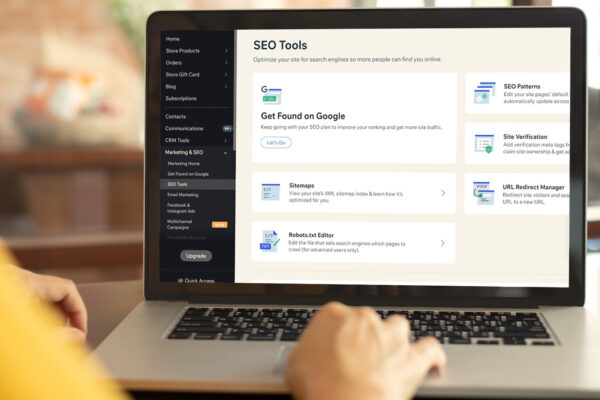A strong and successful search engine optimization (SEO) strategy is essential in the extremely competitive world of e-commerce today. You can increase the visibility, draw in more visitors, and raise conversion rates with the correct tools and strategies. Product information management (PIM) is a crucial tool for accomplishing these objectives.
What is PIM?
PIM provides a central repository for product information, ensuring that information is accurate, consistent, and up-to-date. This allows businesses to streamline the management of product data, such as descriptions, images, specifications, and other key information related to their products. Having this organized and easily accessible information can be extremely beneficial to businesses looking to improve their customer service, increase sales, and ultimately enhance their SEO performance.
By using PIM, businesses can save time and resources by reducing manual work, increasing accuracy, and eliminating redundant data entry. A PIM system can also help with managing different versions of product descriptions, images, and other data fields in different languages and currencies. This allows businesses to quickly launch products into new markets and keep them updated across multiple channels.
How can PIM help improve your SEO?
Product Information Management (PIM) systems are designed to help businesses store, manage, and distribute product information in an efficient and organized manner. It has become a popular tool for businesses looking to improve their SEO rankings.
PIM can help improve your SEO rankings in several ways:
- High-quality Content: PIM can help ensure that product information is accurate, complete, and consistent, which can lead to better on-page optimization and search engine visibility.
- Enhanced Product Descriptions: PIM enables the creation of detailed and optimized product descriptions, which can help improve the relevance and quality of content for search engines.
- Better Keyword Targeting: PIM can provide insights into which keywords are most relevant for each product, enabling e-commerce websites to better target those keywords in their product pages and other content.
- Improved Taxonomy: Taxonomy helps to improve the customer experience by making it easier for customers to find what they are looking for, and to compare products based on relevant attributes. In addition, a well-structured taxonomy can also help to improve search engine optimization (SEO) by increasing the relevance of search results, which can drive more traffic to a company’s website.
- Cross-Channel Distribution – PIM systems also make it easy to distribute your product information across multiple channels. This helps increase the visibility of your product pages and will help improve your SEO rankings.
- Faster and More Efficient SEO Updates – PIM can also help make SEO updates faster and more efficient. With PIM, you can quickly and easily make changes to your product information, which can then be automatically updated across all of your sales channels. This saves time and reduces the risk of errors, making it easier to optimize your product pages for search engines. With PIM, you can keep your website up-to-date with the latest product information and take advantage of new SEO opportunities as they arise.
- Asset Management – Asset management in a Product Information Management (PIM) system refers to the process of organizing and managing digital assets, such as images, videos, and other multimedia files, associated with a product. This includes storing, categorizing, and versioning these assets to ensure that they are easily accessible and up-to-date. We can also attach metadata to digital assets to help improve the search.
This can lead to improved organic search traffic and more conversions for your business but business always questions how do I know the optimization we were doing in PIM is helping us, One way to identify is utilizing Digital Self analytics.
inriver’s digital self-analytics tool, Evaluate, significantly enhances SEO optimization in several ways:
- Content Compliance: Evaluate ensures that your product information is accurate and consistent across all channels, which is crucial for SEO. Accurate data helps search engines understand your products better, improving visibility.
- Keyword Optimization: The tool tracks keyword performance and helps you optimize product listings for better search rankings. This includes monitoring keyword search and share-of-shelf.
- Real-Time Insights: Evaluate provides real-time insights into how your products are performing on the digital shelf. This includes monitoring product search rankings, competitor pricing, and stock levels, allowing you to make data-driven decisions to improve SEO.
- Engagement Intelligence: By analyzing customer interactions and engagement with your product listings, Evaluate helps you understand what works and what doesn’t. This information is vital for refining your SEO strategy to attract more traffic and improve conversions.
- Automated Monitoring: The tool uses smart automation to constantly monitor your products, providing actionable insights that help you stay ahead of the competition and ensure your product information is always optimized for search engines.
Using inriver Evaluate, you can take control of your digital shelf, drive revenue growth, and enhance your SEO efforts with precise, actionable data.
By following these recommendations, you can make sure that you get the most out of your PIM system and improve your SEO performance. PIM can help you stay ahead of the competition in the e-commerce space. So if you’re looking to improve your SEO performance and reach more customers, it’s time to invest in PIM. For more information on this, contact our experts today.


Quite useful blog regarding the ecommerce SEO.